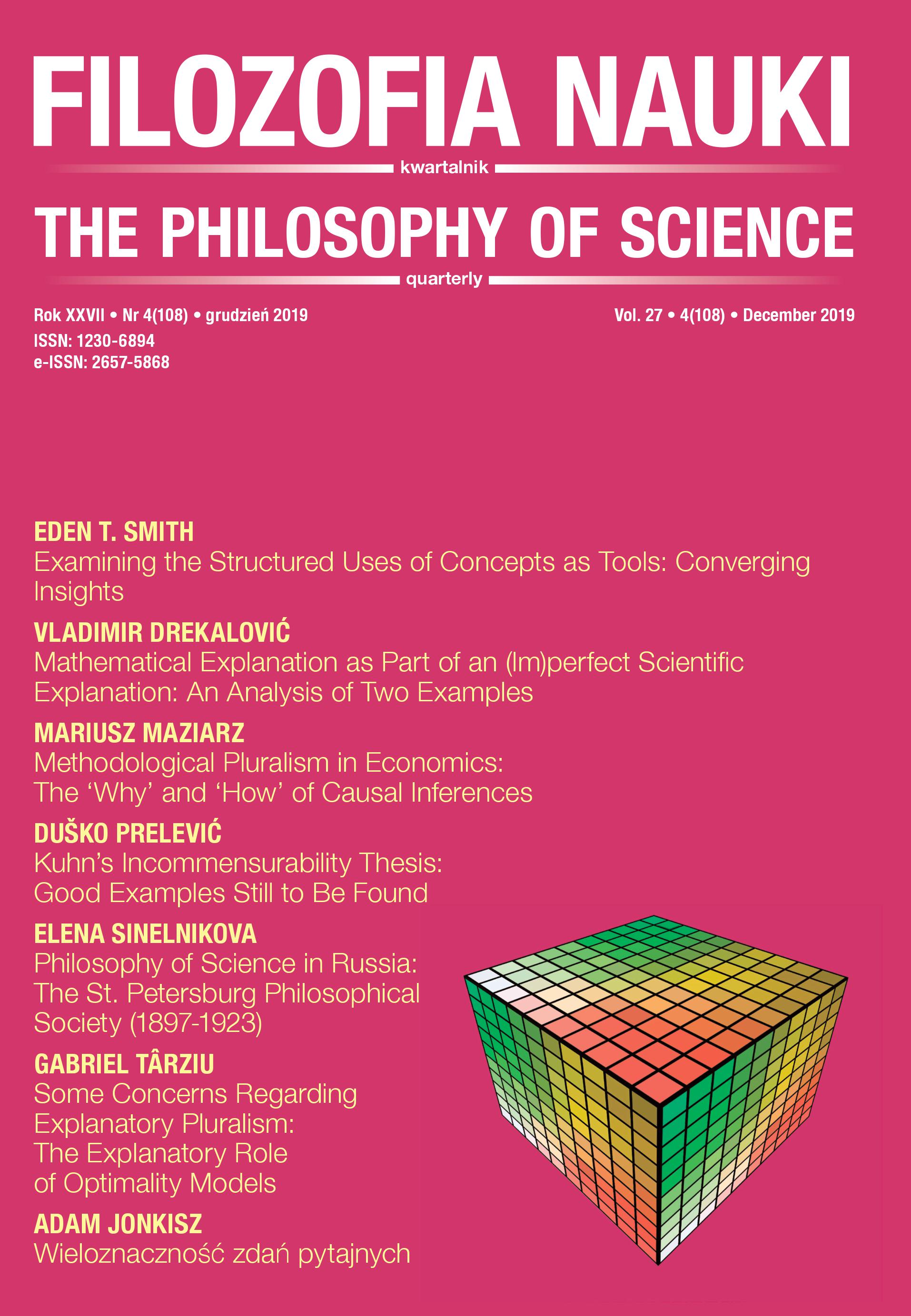Mathematical Explanation as Part of an (Im)perfect Scientific Explanation: An Analysis of Two Examples
Mathematical Explanation as Part of an (Im)perfect Scientific Explanation: An Analysis of Two Examples
Author(s): Vladimir DrekalovićSubject(s): Philosophy, Special Branches of Philosophy, Philosophy of Science
Published by: Uniwersytet Warszawski - Wydział Filozofii i Socjologii, Instytut Filozofii
Keywords: philosophy of mathematics; Enhanced Indispensability Argument; mathematical explanation; Königsberg bridge problem; cicada case
Summary/Abstract: Alan Baker argues that mathematical objects play an indispensable explanatory role in science. There are several examples cited in the literature as solid candidates for such a role. We discuss two such examples and show that they are very different in their strength and (im)perfection, although both are recognized by the scientific community as examples of the best scientific explanations of particular phenomena. More specifically, it will be shown that the explanation of the cicada case has serious shortcomings compared with the explanation of the case of Königsberg’s bridges. We will argue that the latter is a perfectly reliable scientific explanation that employs mathematical reasoning whereas the former is not.
Journal: Filozofia Nauki
- Issue Year: 27/2019
- Issue No: 4 (108)
- Page Range: 23-41
- Page Count: 19
- Language: English

